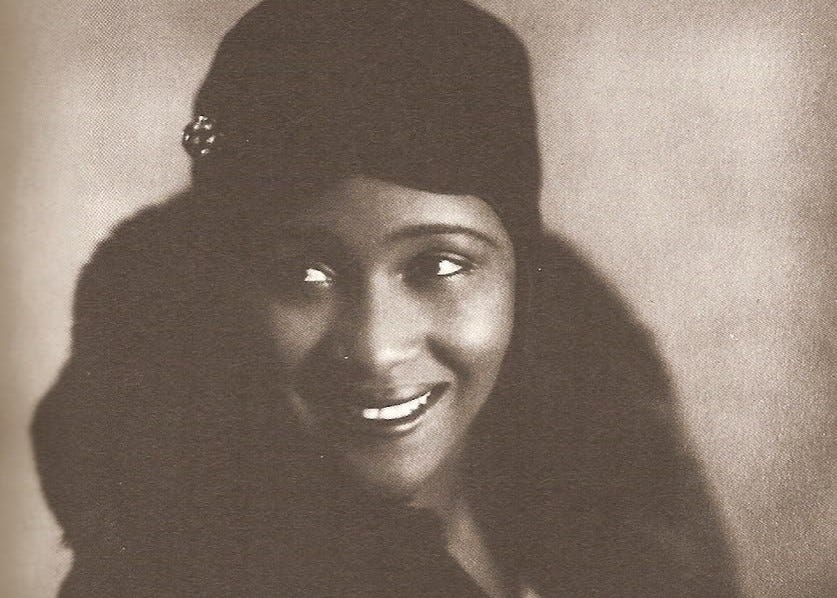Victoria Spivey’s scrappy, high-pitched voice was less solemn than Ma Rainey’s, less sure than Bessie Smith’s, but it dripped with character and perfectly suited the songs she sang. Unlike most of the “classic” blues women of the 1920s, Spivey composed the majority of the songs she recorded. Her evocative lyrics delivered unflinching views of society from the perspective of those near the bottom. She sang of heartbreak, loneliness, poverty, disease, addiction, capital punishment, suicide, and murder. When the mood suited her, she could also be fun-loving, sexy, and wry. Several of her compositions–“Black Snake Blues,” “Hoodoo Man Blues,” “Dope Head Blues,” “You Done Lost Your Good Thing Now,” and “T-B Blues” among them–endured to become blues standards.
The sales of Spivey’s initial sides were so strong that the OKeh and Victor labels brought in some of the era’s finest musicians to back her in the studio: Louis Armstrong, King Oliver, Eddie Lang, Tampa Red, and Georgia Tom Dorsey. Her favorite musician to work with, though, was Lonnie Johnson, the prewar era’s premier blues guitarist. After recording some of the most suggestive duets of the hokum era, the duo would renew their friendship in the early 1960s, when Johnson became the house guitarist for Brooklyn-based Spivey Records. Then in her fifth decade of performing, Spivey was respectfully referred to as “The Queen” by those who knew her.
At the time of her introduction to Lonnie Johnson, the teenaged Spivey was already a seasoned singer, songwriter, and pianist. She was born Victoria Regina Spivey on October 15, 1906, in Houston, Texas. Her father played alongside his sons in a string band; her mother sang secular and spiritual songs. Victoria’s sisters Leona, Addie (a.k.a. Sweet Pease), and Elton (The Za Zu Girl) sang the blues. Her brothers Sam danced and played drums and Willie played piano.
Victoria’s musical abilities became evident during her youth, when Robert Calvin inspired her to learn piano. By age ten she was playing piano accompaniments to silent films at Houston’s Lincoln Theatre. Within a few years she was playing for tips in bordellos, gambling joints, “gay houses,” and whiskey bars, sometimes in the company of Blind Lemon Jefferson, Pearl Dickson, Bernice Edwards, and other blues musicians. During this period, Spivey noted, her “sorrowful moans, low down-home blues piano, and stark, rough blues lyrics developed.”
Witnessing performances by her idol, Ida Cox, profoundly influenced Spivey. But what really convinced her to become a recording artist was the success of another Houston-based singer, Sippie Wallace. In an interview with Paul Oliver, Spivey explained, “My brothers said to my mother, ‘Well, if Sippie Wallace can go and sing, and I know my sister can sing as well as she can. We’ll send her to St. Louis.’ And, well, they got together and they sent me to St. Louis, Missouri.”
Keep reading with a 7-day free trial
Subscribe to Talking Guitar ★ Jas Obrecht's Music Magazine to keep reading this post and get 7 days of free access to the full post archives.



